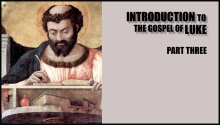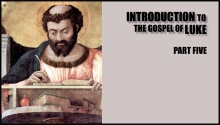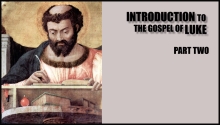 The Christmas season is at hand, are you ready? I don’t mean have you decorated the tree and finished your shopping or even having planned the menu for the big family dinner. I mean are you ready to answer the questions and challenges that are a natural part of the occasion.
The Christmas season is at hand, are you ready? I don’t mean have you decorated the tree and finished your shopping or even having planned the menu for the big family dinner. I mean are you ready to answer the questions and challenges that are a natural part of the occasion.
It had been a cold winter on the north-east coast of the United States in 1861, colder still were the hearts of many in the south. As Abraham Lincoln rose to power, so the 11 states announced their succession from the USA.
 Welcome to Think-Biblically.com. You have discovered a place that reveres the Holy Bible. This site strives to spread spiritual knowledge, holy living, and godly influence. For one can only live by what one knows, and in so doing compel others to do likewise. To think biblically, then, leads one to live rightly and speak courageously.
Welcome to Think-Biblically.com. You have discovered a place that reveres the Holy Bible. This site strives to spread spiritual knowledge, holy living, and godly influence. For one can only live by what one knows, and in so doing compel others to do likewise. To think biblically, then, leads one to live rightly and speak courageously.

For some reason Luke skips over the wise men, the ruler’s decision to have all boys three years of age and under slaughtered, and the escape to Egypt. Due to the fact that this is an introduction only to the ministry life of Jesus, I imagine he felt he needed to leave it out. An introduction to a book can only be so long. So instead Luke moves us ahead 12 years to the event of his withdrawal from his parents after the feast of Passover to spend time in the temple. The timing, and number of days missing, are significant.
 In all our talk about what the gospel isn’t, it is important to understand what it is. The gospel is both a proclamation and a person. It is the Word that we proclaim, and it is this same Word, the person of Jesus Christ, whom we follow.
In all our talk about what the gospel isn’t, it is important to understand what it is. The gospel is both a proclamation and a person. It is the Word that we proclaim, and it is this same Word, the person of Jesus Christ, whom we follow.

If a man decides he wants to live his life separate from God, it means that he goes about his life without thinking about or recognizing God. He may still continue to experience the blessing of God’s presence in the world around him indirectly, but this is also left unrecognized and disbelieved.
 “Good or bad, it’s not what you’ve done it’s what you’re going to do that matters.”
“Good or bad, it’s not what you’ve done it’s what you’re going to do that matters.”
I don’t remember where I first heard those words – I think it was in a Batman movie – regardless, their point is to inspire us to move beyond our past and look toward a better future. They affirm us that our yesterdays do not determine our tomorrow. The truth of those words is, however, applicable for only a small percentage of the world’s population.

Luke continues his hop-scotch through time, now leading us to an adult John the Baptist in the midst of his ministry. At first glance it appears that Luke is overdoing it with the number of rulers he validates in the first three verses of chapter three. Why should he bother with it? For a couple of reasons. First, to establish the time the events took place (this is a historic record, after all). Second, the benefactor of the book, Theophilous, would be familiar with these rulers if not personally then by reputation. This firmly establishes the time and historicity of John’s ministry.

I started making things more complicated than they needed to be at a very young age. It started with small things, like arguing with my parents that “because I said so” wasn’t actually an answer to "why". Then it lead to a revolutionary understanding. I began to see that that there was no problem, however complicated , that if you looked at it in the right way, couldn't become still more complex.
 Be careful not to display your righteousness merely to be seen by people. Otherwise you have no reward with your Father in heaven. Thus whenever you do charitable giving, do not blow a trumpet before you, as the hypocrites do in synagogues and on streets so that people will praise them.
Be careful not to display your righteousness merely to be seen by people. Otherwise you have no reward with your Father in heaven. Thus whenever you do charitable giving, do not blow a trumpet before you, as the hypocrites do in synagogues and on streets so that people will praise them.

Last time we left off with the angel Gabriel talking with Zechariah in the inner sanctum of the temple. Zechariah’s should have thought before he spoke, a situation I’m sure we’re all familiar with. He questioned the truth of Gabriel’s prophecy regarding he and his elderly, barren wife having a son. The result was the angel made Zechariah dumb until John’s birth. And this is where our story becomes rather humorous. When Zechariah left the temple area, much to the relief of all, he could not tell them what had transpired. This event inspired the world’s first game of charades.

After completing his introduction to, and proof of, the Messiah being the rightful king of all humanity Luke turns to the gospel proper. This section begins with a “progress report” of sorts (Luke 4.14-15). We see throughout the book of Acts a series of progress reports on the growth of the early church. These reports are marked divisions of the text that can be used to break down the content and outline the book. Luke also includes progress reports in his gospel, but rather than being about the church they are about how people respond to Jesus.
